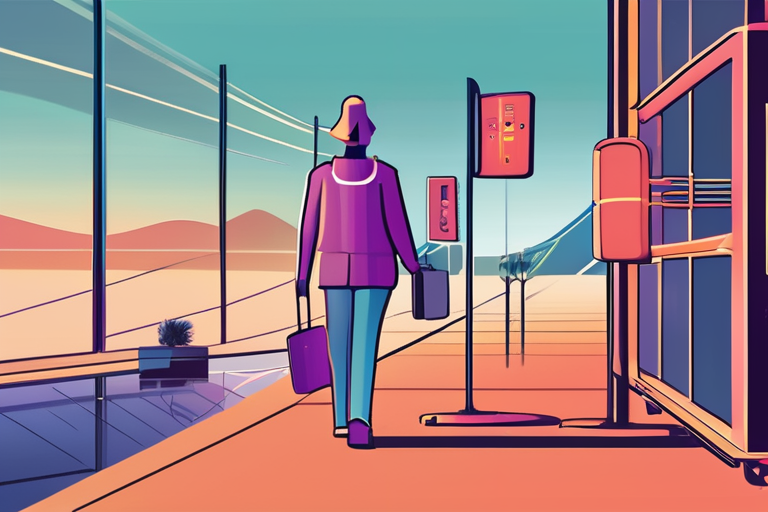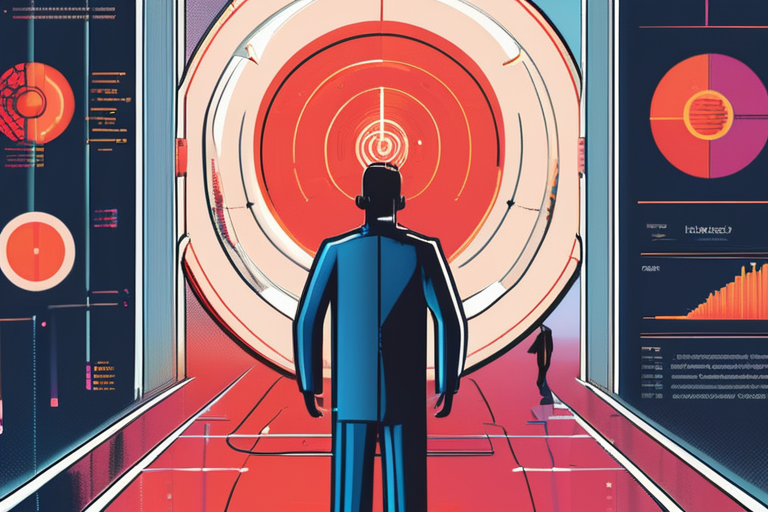The AI Travel Revolution: How Technology is Redefining the Way We Explore
Imagine stepping off a plane and being greeted by a personalized itinerary, tailored to your unique interests and preferences. No more generic travel brochures or tedious research; AI has taken over, transforming the way we plan and experience our journeys.
For Fahd Hamidaddin, Founding CEO of the Saudi Tourism Authority and President of the upcoming TOURISE Summit, this is not just a futuristic dream, but a reality that's already changing the face of travel. "AI is no longer just a tool for booking flights or hotels," he explains. "It's becoming an integral part of the travel experience itself."
As we delve into the world of AI-powered travel, it becomes clear that this revolution is not just about convenience; it's also raising important questions about freedom and choice. Are we surrendering our autonomy to algorithms, or are they empowering us to explore in new and exciting ways?
The Rise of Personalized Travel
One of the most significant developments in AI travel is the rise of personalized recommendations. Platforms like Instagram Reels no longer just showcase generic travel destinations; they curate journeys that feel tailor-made for each individual.
For instance, a traveler planning a trip to Japan might be presented with a customized itinerary that includes hidden gems and local secrets, rather than just popular tourist spots. This level of personalization is made possible by AI algorithms that analyze user behavior, preferences, and interests to create unique travel experiences.
The Role of Machine Learning
At the heart of this revolution lies machine learning (ML), a subset of AI that enables systems to learn from data and improve their performance over time. In the context of travel, ML is used to analyze vast amounts of data on user behavior, preferences, and demographics to create highly accurate predictions.
For example, an airline might use ML to predict which passengers are most likely to upgrade to business class, allowing them to offer targeted promotions and increase revenue. Similarly, a hotel chain might use ML to anticipate the needs of its guests, providing personalized services and amenities that enhance their stay.
The Ethics of AI Travel
As AI becomes increasingly integrated into our travel experiences, questions about ethics and accountability arise. Who is responsible for ensuring that AI systems are fair, transparent, and unbiased? And what happens when algorithms make decisions that affect people's lives?
Hamidaddin acknowledges these concerns, emphasizing the need for clear guardrails and regulations to prevent AI from perpetuating existing social inequalities. "We must ensure that AI is used in a way that promotes cultural exchange, understanding, and respect," he stresses.
Humanizing AI Travel
One of the most compelling aspects of AI travel is its potential to humanize our experiences. By leveraging data on user behavior and preferences, AI systems can create personalized connections between travelers and destinations.
For example, an AI-powered chatbot might engage with a traveler in real-time, offering recommendations and insights that feel like advice from a trusted friend. This level of personalization can foster deeper connections between people and places, creating a more meaningful and enriching travel experience.
Conclusion
The AI travel revolution is not just about technology; it's about redefining the way we explore and connect with each other. As we navigate this new landscape, it's essential to strike a balance between innovation and accountability, ensuring that AI systems promote freedom, choice, and cultural exchange.
For Hamidaddin, the future of travel is clear: "AI will continue to transform our experiences, but it must do so in a way that respects human values and promotes understanding." As we embark on this journey, one thing is certain – the world of travel will never be the same again.
*Based on reporting by Artificialintelligence-news.*



 Hoppi
Hoppi

 Hoppi
Hoppi

 Hoppi
Hoppi

 Hoppi
Hoppi

 Hoppi
Hoppi

 Hoppi
Hoppi











